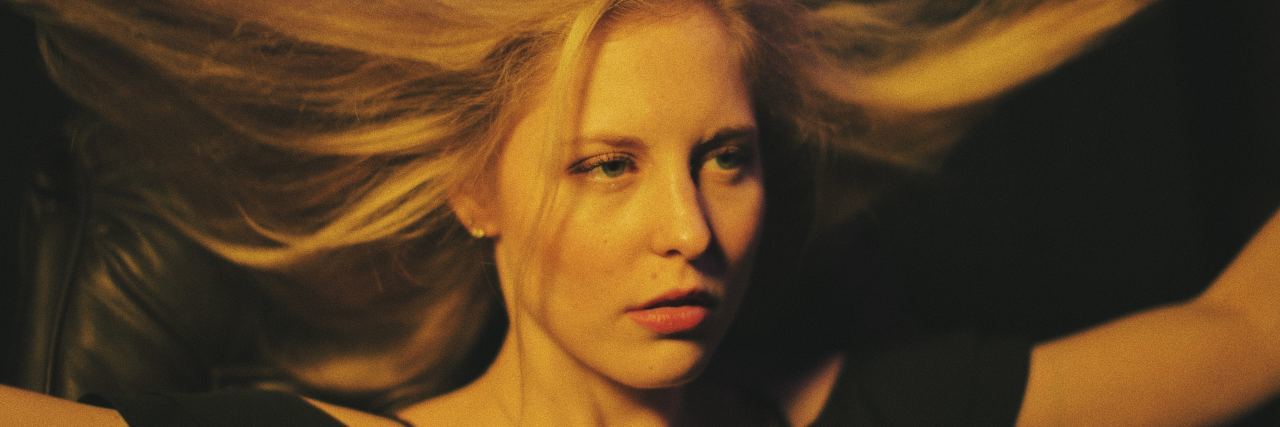I have chronic migraines. For the last 18 plus months they have escalated from one a month to me being bedridden three to seven days a week. My life is dictated by the level of pain I am in each day.
I have many supporters and people who love me and for that I am extremely grateful. I am also vocal about my journey online via Facebook and my blog page because online is often the only contact I have with people. My life has become very small and I need to be able to reach out and talk about what I am going through.
But with being vocal comes the inevitable questions: Have you tried this? Have you seen this article? Why haven’t you done this? Why is your doctor not fixing it?
I understand these questions are said in love and concern and I appreciate that people want to help. But the reality is I feel really guilty about being ill. I feel guilty that perhaps I am not trying enough, doing enough, spending enough to find answers. I feel pressure, whether real or imagined, to find answers and get cured.
I want, more than anyone, to be free of pain. I have researched, read medical journals, contacted specialists overseas, talked to doctors, joined support groups, tried every drug/supplement/oil/diet that anyone has suggested. I have kept diaries and logged everything I eat. I have started meditating and yoga and exercise. I have tried water therapies and psychotherapy. I have paid hundreds and hundreds of dollars on pills and treatments. I am doing all I possibly can within my own financial limits.
And yet I still feel guilty. I feel guilty because the more I research my condition, the more I have to accept that there is not a lot of knowledge out there about it. There are no “cures.” There are very few medications specifically for migraine and they aren’t available in my country yet. The research is being done, but it is not at a level where I can hope for relief anytime soon. It makes me feel guilty because when people say to me, “But surely there is something we can do?” I have to say, no. No, there is nothing they can do. No, I may not get better. No, there is no end to my pain at the moment.
It makes me feel guilty because I know they want me to be better so badly. And because I find it hard to accept this as a disability when no one around me wants me to accept it. Everyone wants me to fight (which I am) but no one wants to hear that this may be a long-term illness that I have to live with. Because my disability is invisible, it is hard for people to accept that it may not change. So I feel guilty for being ill and for wanting to accept my illness.
I need to accept it. I need to find a way to accept this is part of my life. If I don’t learn how to, I will become bitter and angry and frustrated, and that is not who I am. I don’t know how to accept something I am still actively fighting, but part of it is being allowed to say “it may not change” and have others hear that, like really hear it, and accept it. I don’t want to feel guilty for being sick. I don’t want to feel guilty for not being cured.
Perhaps people like me, people with invisible illnesses, need others to fight with them in a different way. There are two people in my life who make me feel accepted and empowered at the same time, and I believe they can teach us all something about supporting people with chronic illness.
The first is a friend of mine. She heard about my struggles and reached out. She asked if she could help by doing research for me and spread my story to people she knew in the medical field. The important thing was that she didn’t say she wanted to find a cure, she didn’t put any pressure on me to try stuff and didn’t ask me why I hadn’t tried a, b and c. Instead, she simply offered to help by educating herself. That last bit is so important. There is no pressure for a cure. There is no push to find answers. It is simply a desire to make my life a little more livable than what it currently is.
The second is my husband. He had accepted my decisions from day one of this journey. If I don’t like the way a medication has made me feel, he’s supported my decision not to take it. When I’ve explained I would prefer pain to the feeling of being drugged up and brain dead, he has accepted that as my right to choose. When I tell him I am running out of places to go to for answers, he has stood by me and let me make the decision as to whether to keep searching or not. He supports. He doesn’t pressure or push or demand. He simply stands by me as I make decisions about my health. He has often said, “Only the person in pain can make that call,” when I ask him if I am making the right decision about taking a medication or not. He gives me back the power to make the calls on my life.
People in chronic pain have enough pressures in life. They need support and empowerment to make their life their own again. Sometimes simply being there with the person is enough, you don’t need to fix the problem. Love is often all that is required.
Photo by Camille Ralston on Unsplash

